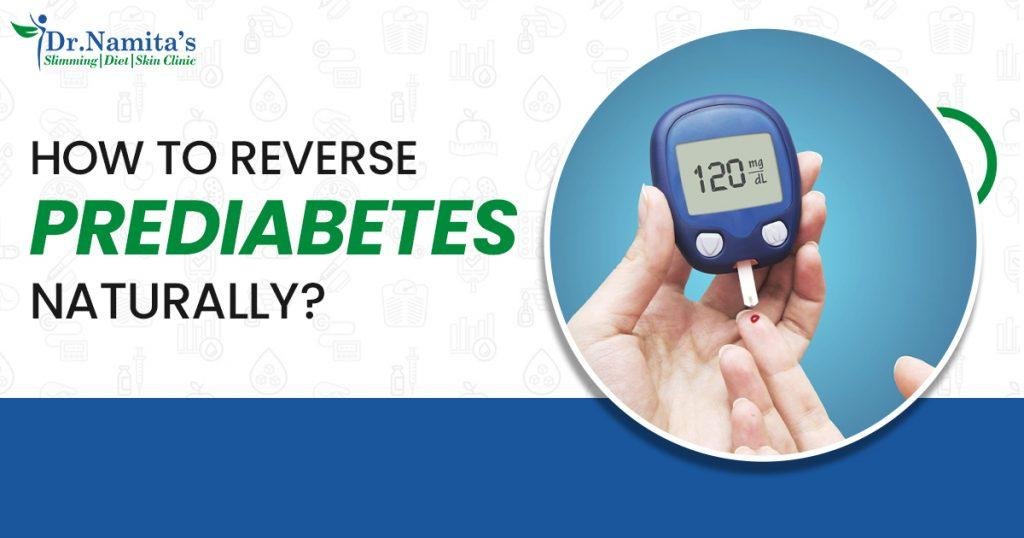Diabetes is on the surge in India and is one of the most prominent lifestyle diseases worldwide. It deals with the body’s inability to manage or produce insulin efficiently. This leads to high blood glucose or blood sugar levels. With Type-1 diabetes, the body doesn’t produce enough or too little insulin.
Type -2 diabetes affects the way the body processes blood sugar. Prediabetes is a condition where blood levels are high, but not enough to be classified as Type-1 or Type – 2. Which can be well consulted by Dr. Namita Nadar.
People who have prediabetes have up to a 50% chance of developing Type-2 diabetes within 5 to 10 years.
What is prediabetes?
“Pre” means “before”, so “prediabetes” is exactly what it sounds like, it’s a state before you develop Type-2 diabetes. When you have prediabetes, your blood sugar levels are high than normal. It is metabolic and endocrine dysfunction, a state in which too much sugar accumulates in your blood. This sugar can then deposit in small blood vessels in the body, which can lead to organ dysfunction.
Prediabetes, also known as intermediate hyperglycemia is a condition where the patient has higher than normal blood glucose levels but is not high enough to be diagnosed as a full-blown diabetic. If you are pre-diabetic then you are at a higher risk of developing Type-2 diabetes mellitus and other cardiovascular diseases, for which consultation from the best diet coach is recommended.
How to reverse prediabetes?
This can be an elongated process that happens over time, and certain important lifestyle changes can help your body reverse course. There are some risk factors you can’t control, like genetics. But lifestyle changes also play a role in reversing prediabetes and preventing Type- 2 diabetes.
- Lose excess weight
Obesity is a major risk factor for insulin resistance, which means your body can’t properly regulate blood sugar levels. The way to reverse the prediabetes process and for you not to develop Type 2 diabetes is through weight loss. As we gain more weight our cells become more and more resistant to the effects of insulin.
Research shows that you can reduce your risk of developing Type 2 diabetes by as much as 58% when you lose 5% to 7 % of your body weight and work out at least 150 minutes per week.
- Cut on added sugars
Your blood sugar levels are directly related to how much sugar you consume, so eating fewer calories. It also means making sure that those calories come from healthier, more nutrient-rich foods. It is very crucial to watch your calorie intake, but you also have to think about the quality of the foods you’re consuming.
Eliminate sugary foods like-
- Soft drink.
- Baked goods.
- Sugar cereals
- Fruit juice concentrate.
- Exercise regularly
Getting your body moving can get your blood sugar numbers moving in the right direction, too. About 30 minutes a day five times a week is a sufficient workout. We sometimes ask patients to do 15 minutes of exercise a day twice a day during the work week. If you get an hour for lunch for ex- take 15 minutes to do some moderate-intensity exercise and then do the same again at the end of the day.
- Take adequate rest (Sleep)
Sleep is a critical factor in so much of our health, and prediabetes is no different. Studies show that your level of Cortisol, a hormone from your adrenal gland, should be low at 3:00 AM- and a high Cortisol level at this time can negatively impact your blood sugar. Individuals that don’t sleep seven to nine hours of sleep can have higher levels of cortisol.
If your sleep schedule is out of order, your risk of a condition like diabetes goes up. That means that if your work the night shift – or are simply prone to staying awake until the early hours of the morning – you may need to work extra hard to get enough good-quality sleep to keep your risk at bay.
- Ask for help
Let’s start with this important acknowledgment. It can be really difficult and overwhelming to try to overhaul your lifestyle. Patient education is so important because many people may not know what healthy choices are.
Your healthcare provider can also talk to you about how to access healthy foods and learn to read nutrition labels. This is especially important if you live in a low-income marginalized community where studies how diabetes rates are highest.
Final verdict
Gaining weight or taking certain medications can accelerate your transition to Type- 2 Diabetes while changing your lifestyle habits can slow and eventually reverse that transition altogether. It can take weeks, months, or even years to implement the kind of changes that will take you off the course of Type 2 diabetes. But with hard work and patience, it’s possible with support from the best nutritionist.
SOURCE : https://drnamitadietclinicnoida.com/

